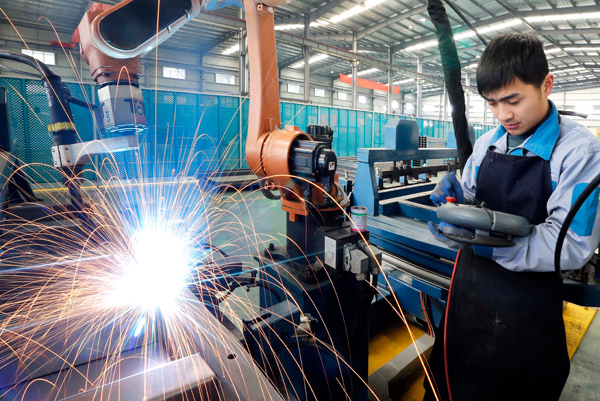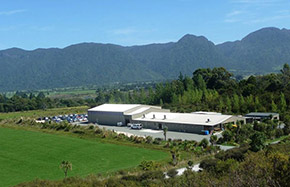Blueprint to beef up skills in manufacturing sector
 |
|
A skilled worker operates a welding robot at an elevator-manufacturing company in Lianyungang, Jiangsu province. SI WEI / FOR CHINA DAILY |
Guideline aims to address training gap in IT industry
The launch of a guideline, that focuses on training and talent development in the manufacturing industry, serves as an important measure to enhance China's manufacturing prowess, marking a stage for the full implementation of the Made in China 2025 strategy.
The guideline has been released by the Ministry of Education, the Ministry of Human Resources and Social Security and the Ministry of Industry and Information Technology.
The guideline aims to further improve skills in the manufacturing industry and realize the strategic objective of building China into a manufacturing power.
The Made in China 2025 was first put forward by Premier Li Keqiang in his Government Work Report in 2015.
There is a shortage of talent in the country's manufacturing industry. Talent gaps in the information technology industry are estimated to reach 7.5 million by 2020, according to the document.
Seven important tasks were listed in the guideline, such as speeding up the integration of industry with education, promoting key abilities and qualities that are adaptive to advanced manufacturing industry, and establishing a high-level management skills pool.
Wang Jiping, a senior official of the Ministry of Education's vocational department, said: "Structural surplus and a shortage of talent in the manufacturing industry coexist and education doesn't satisfy corporate needs."
Manufacturing industry employees, especially skilled workers, have a relatively low status and salary, hindering their career development, Wang added.
"Higher vocational technology colleges should improve curriculum designs and cultivate high-end technical talent to upgrade China's manufacturing industry and meet the demands of intelligent manufacturing enterprises," said Dai Yuwai, president of Tianjin Light Industry Vocational Technical College.
"Colleges are encouraged to carry out skill development projects by working with manufacturing enterprises," said Dai, suggesting that the current three-year higher vocational school education should be extended to four years.
"The higher vocational education should adapt to the demands of social and economic development. Manufacturing enterprises should strengthen their vocational technical training for employees," said Liu Hong, a researcher from the Central Institute for Vocational and Technical Education.
According to the guideline, employees in the manufacturing sector are expected to receive education for at least 11 years on average and 22 percent of them will finish higher education by 2020
Cheng Yu contributed to this story.
















